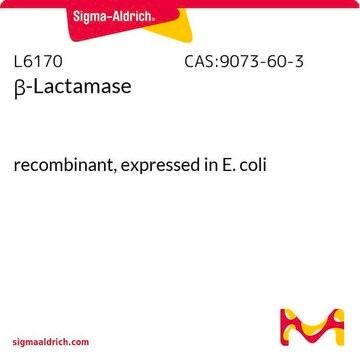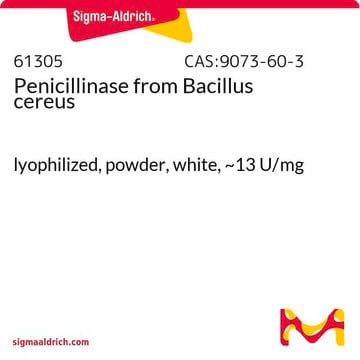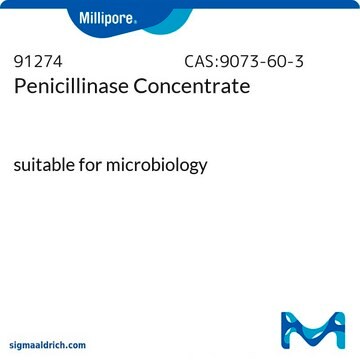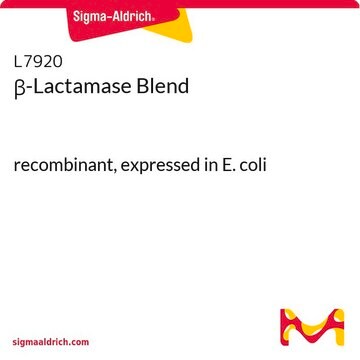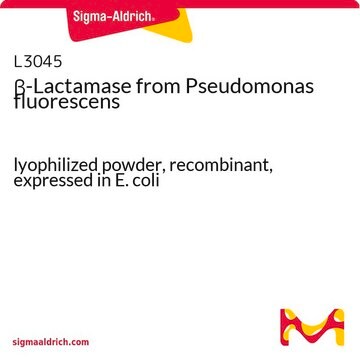P4524
β-Lactamase from Enterobacter cloacae
Type IV, lyophilized powder, 0.2-0.6 units/mg protein (using benzylpenicillin)
Synonym(s):
β-Lactamase I, β-Lactamase II, Cephalosporinase, Penicillin amido-β-lactam hydrolase, Penicillinase from Enterobacter cloacae
About This Item
Recommended Products
biological source
bacterial (Enterobacter cloacae)
Quality Level
type
Type IV
form
lyophilized powder
specific activity
0.2-0.6 units/mg protein (using benzylpenicillin)
mol wt
29 kDa
composition
Protein, ~60%
technique(s)
enzyme immunoassay: suitable
suitability
suitable for enzyme test
application(s)
pharmaceutical
storage temp.
2-8°C
Looking for similar products? Visit Product Comparison Guide
General description
Application
Biochem/physiol Actions
Unit Definition
Physical form
Analysis Note
inhibitor
Signal Word
Danger
Hazard Statements
Precautionary Statements
Hazard Classifications
Resp. Sens. 1 - Skin Sens. 1
Storage Class Code
11 - Combustible Solids
WGK
WGK 3
Flash Point(F)
Not applicable
Flash Point(C)
Not applicable
Personal Protective Equipment
Certificates of Analysis (COA)
Search for Certificates of Analysis (COA) by entering the products Lot/Batch Number. Lot and Batch Numbers can be found on a product’s label following the words ‘Lot’ or ‘Batch’.
Already Own This Product?
Find documentation for the products that you have recently purchased in the Document Library.
Customers Also Viewed
Our team of scientists has experience in all areas of research including Life Science, Material Science, Chemical Synthesis, Chromatography, Analytical and many others.
Contact Technical Service